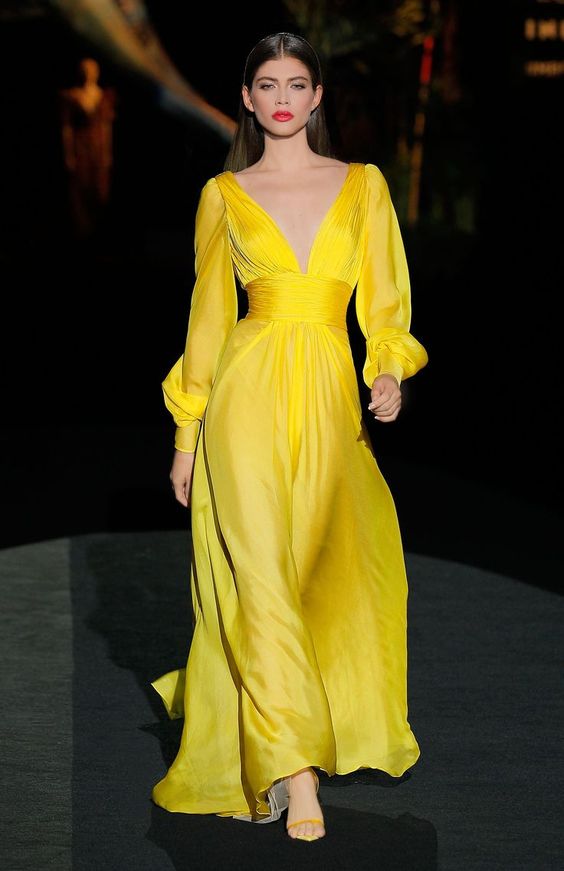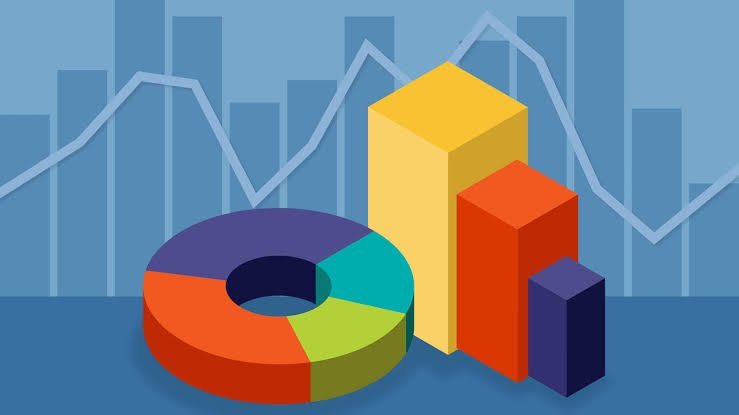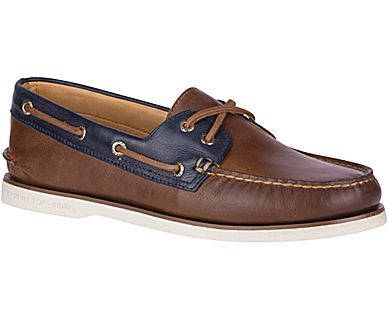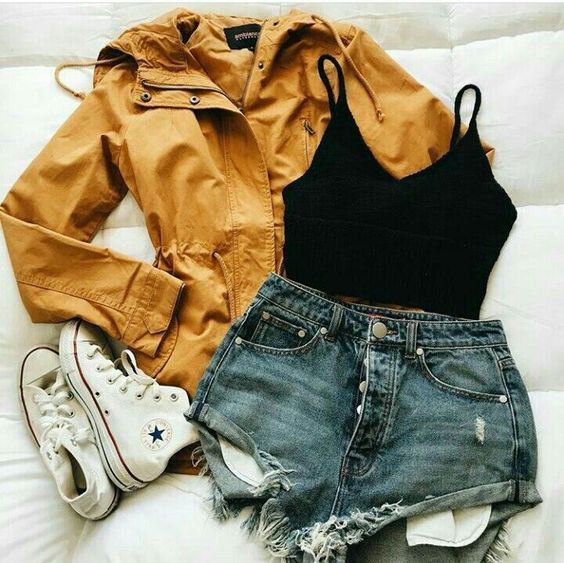What to wear to an embassy event: When it comes to dressing for a diplomatic event, there’s no such thing as overdressing. Your goal should be to stand out in a way that makes you look your best, not like you’re trying too hard. Find out what to wear to an embassy reception and what to wear to an embassy interview. If you’ve been invited to an embassy event, chances are that the host has made a pretty good first impression on you—and now it’s your turn to return the favor. You want them to remember you fondly and think about you later when they need someone like you. But how do you do that? With your clothes! The way we dress not only affects our moods and attitudes, but also the way other people perceive us. When we dress up, we make ourselves more attractive and appealing to others. We feel better about ourselves and project confidence. We become more likely to succeed at whatever goals we set for ourselves because we have more confidence in our ability to achieve them.
What to Wear to an Embassy Event
When you’re invited to an embassy event, you don’t want to show up dressed like you just came from a casual dinner with friends. At the same time, you don’t want to feel underdressed either.
The key is to dress as if you were going on a date with your significant other.
So what does that mean? It means wearing something that makes you feel confident and beautiful—but also smart and put-together! You want to look like someone who takes pride in their appearance, but not like someone who’s trying too hard.
What is appropriate for this type of event? A cocktail dress or nice pants suit will do fine, but it’s best to avoid anything too tight or revealing, unless you’re sure it’s okay for the event (such as a fundraiser for breast cancer research).
If you’re planning to attend an embassy event, it’s important to know what to wear. While this may seem like a simple task, you’ll want to make sure that your attire is appropriate for the occasion.
Here are some tips for dressing appropriately:
Find out if there will be a dress code. If there is a dress code, follow it!
If there is no dress code, ask someone who has been to the event before what they wore and if they liked their outfit.
If you’ve ever been to a diplomatic reception, you know that the dress code is generally very relaxed. You’ll see people in suits, as well as people in jeans and t-shirts. But if you’re not sure what to wear, or just want to make sure your outfit hits all the right notes? Read on!
Wearing the right outfit to an embassy event is a great way to show off your personal style, as well as your knowledge of international affairs. The following tips will help you pick out the perfect outfit for your next embassy event.
Are you looking for advice on what to wear to an embassy interview? If so, you’ve come to the right place. We’ll give you some tips for what to wear, what not to wear, and how to make sure your outfit says “I am ready for this job!”
Do you want to get an embassy interview? You’re in the right place.
We’ve got all the info you need to make sure your outfit choice is perfect for that day.
Are you preparing to interview at an embassy? This guide will help you know what to wear, what not to wear, and what to bring along with you.
You’re ready to take the next step in your career. You’ve got the experience, you’ve got a great resume, and you’re sure that your skills are going to make you a star at this new job. Now all you need is an interview with one of the embassy officials.
But what should you wear? How do you prepare? We’ve got some tips that will help make your interview go smoothly and keep them wanting more!
You’ve been working hard on your resume, and now it’s time for the next step: an interview with a foreign embassy.
Now that you’ve made it this far, you’ll want to make sure you’re dressed appropriately for the occasion. For some people, this means wearing a suit or dress; others prefer casual attire.
We’ll help you decide what outfit is right for your particular circumstances so that you can make an impression on the person who will be interviewing you!
So what should you wear? Here are some tips:
If you’re going to an interview, chances are you want to look your best. Whether it’s for a job or a college application, you’ll want to make the most of your time in front of the hiring manager.

Showing you have a sense of consideration for the event of the interview by wearing proper formal clothes and shoes with minimal accessories is the way to go. Also, minimal makeup and slight perfume smell are also supporting elements in leaving a good impression of a serious visa candidate.
When you’re interviewing for a job, you’re meeting with people who could potentially become your coworkers and lifelong friends. You want to present yourself in the best possible light—and that means dressing for the occasion.
After all, you don’t want to be the one person who shows up to an interview in jeans and a t-shirt. You want to be prepared and ready to wow them!
What to wear to an embassy reception
If you’re headed to an embassy reception, there are a few things you’ll want to keep in mind.
First of all, unless it’s a very formal event, don’t worry about dressing up like you’re going to prom. You can wear what you normally would for work or even a night out with friends and it will be fine—but if you’re going to an event where people are dressed up and looking their best, then go ahead and put on something nice.
The next thing to think about is what kind of event it is. Is this a formal diplomatic function? Is it a cocktail party? Is it just a meeting at the embassy? If it’s the first two, you’ll want to dress more formally than for the third one—which means no jeans or flip-flops!
Finally, make sure that whatever you wear isn’t too revealing (like low necklines or short skirts). You want your outfit to be appropriate for the occasion—not just for your own comfort level!
Top Mistakes to Avoid During a Visa Interview
Ever questioned about the importance that visa interview has in getting your Schengen visa approved?
In this article we will show you how to increase the chances to get a Schengen visa by learning which are the common mistakes to AVOID during a Schengen Visa interview.
Note: Guidelines (advises) given in this article are NOT solely intended for the Schengen visa interview, hence they are usable for any type of visa interview.
Behind every REJECTED Schengen visa stands a REAL REASON for it. It is important for you to be aware that there are things you should avoid during a visa interview. Not everyone is able to see the importance of getting to directly meet with diplomatic officials in a Schengen visa interview. Most of the visa applicants put away their effort and energy in collecting their documents of visa application. This way, they often fail to give the needed significance to the visa interview.
Well, the situation is this! There is a great chance for you to have an impact on your visa application. Leaving a good impression and presenting yourself properly during the appointed Schengen visa interview is important too! (But, make sure to NOT neglect the importance of the visa application documents as well!).
The officials of the Embassy or the Consulate of the Schengen country, where you apply for a visa to, will expect from you to demonstrate certain interview qualities and performances that distinguish you from a failed candidate.
Being a visa candidate, so, requires from you to identify which are the common snappish elements that might ruin your visa interview. Only then you will be able to perform a successful visa interview by avoiding to get trapped in such weird situations as it is the visa denial.
That is why, together, we will go through the common Schengen visa refusal reasons. Additionally, we will offer you suggestions on how to avoid making mistakes that lead the diplomatic office to give you a Schengen visa rejection stamp on the passport.
Lateness
When you appoint the visa interview, the embassy or consulate will tell you the exact date and time of it. One of the bad opinions the embassy creates about you is incorrect and neglectful candidate, because the tardiness on your appointment. Instead, try to arrive at the embassy or consulate where your interview will take place, at least a few minutes earlier. This will help you calm yourself down and relax when giving your answers to the interview questions.
What is more, because finding a free parking lot often is a time-consuming thing, we suggest you to get a taxi instead of your personal vehicle. Also, make sure to leave home early enough, counting the traffic jam.
Inappropriate Answers
Another element, that provokes visa officials to not take your application seriously, is not having enough preparations for the interview. If you are not able to predict what Schengen visa interview questions are, you will not be able to give genuine and well-thought-out answers for visa officials. Well…the fact is that typically, when you do not know what questions you will expect, there are risks of giving inappropriate answers (made-up, unacceptable, mistaken, incomplete, or goofy answers) knowing the amount of tension you carry with you in an interview session.
That is why it is essential for you to be familiar with the common Schengen visa interview questions, to properly plan in your head your answers early enough, early enough before the visa interview date. You can also write down your answers if that helps you recall them easily during the interview session (Make sure to not take them with you in the interview and do not sound programmed when giving your answers).
It is also important that when a visa officer asks you a question, do not take too much of time in giving the answer, otherwise this can be perceived as a lack of truthfulness.
Skipping Questions or False Answers
Whenever you apply for a Schengen visa, the interview is simply a way for the diplomatic office to meet with you and understand more in depth if the information provided in the visa application form is correctly and frankly offered. Trying to avoid answering questions of the visa official, does not protect you at all, let us say if the question is sensitive to you. Also, giving fake information does not give you any good result, as the diplomatic office will reconfirm all the information you provide during the interview and in the application form.
Instead of avoiding or falsifying the answer, you must be open and direct with the visa official whatever the question is. Keep in mind that the diplomatic office has the authority to check over your travel history to Schengen Area.

Inappropriate Appearance
What else might penalize your visa application is the way you appear during your interview, including your outfit, shoes, makeup, temperament, body posture, even the amount of perfume you wear. Remember that the first impression is everything and, usually, you cannot get the second chance to leave the first impression, so give it the needed importance instead of trying to improve it another time.
It is considered an unwanted element of your interview if you dress carelessly or informally, with unrefined and showy clothes, accessories or tie. Showing you have a sense of consideration for the event of the interview by wearing proper formal clothes and shoes with minimal accessories is the way to go. Also, minimal makeup and slight perfume smell are also supporting elements in leaving a good impression of a serious visa candidate.
Another important component of the Schengen visa interview is the body posture and mimics you make during the question-answers session. A face that expresses fear and uncertainty, as well as a body that is not sitting properly, might lead visa officials to consider you a worthless and dishonest candidate. If you lean back you might be considered arrogant, leaning forward – aggressive, if too laid-back you will be perceived as a lazy individual, while armed-crossed tells you are trying to resist and defend yourself from the questions.
In its place, try holding a neutral body position by sitting tall and keeping your arms open to show you are open and ready for a fair interview.
Avoiding the eye contact with the embassy official during the interview also does not help at all. This is also one of the things that make you an inappropriate candidate to be given a visa, as it is usually perceived as a lack of seriousness.
Instead, keep the normal eye contact when listening questions or giving answers, by avoiding odd and consistent eyeing.
Incomplete Supporting Documentation
As aforesaid, the reason the diplomatic office invites you for a visa interview is because it needs to prove you have offered frank and correct information on your visa application.
Appearing in the interview half or inappropriately equipped with the needed documentation to support the accuracy of the information provided in the visa application form, will absolutely decrease your chances to get a Schengen Visa. Such behavior, might demonstrate your insignificance given towards the given visa requirements.
Instead, make sure to consider early enough all the visa requirements. Find out early enough which are the documents that the diplomatic office recognizes as a prove your education, your marital status, your booked accommodation, flying ticket reservation, language skills and more. Prepare these documents in one place (folder) at least a day earlier the interview and make sure to go through the checklist of requirements, to make sure you haven’t forgotten any of the documents.
Take the folder with you with documents well-organized, together with needed copies. Let the visa official understand that you know well visa requirements and that you are familiar with all documents within the folder, by offering documents in order, quickly as he/she requires. Getting lost in the folder by NOT knowing what are the documents in it, will make the worst of impression.
Unnecessary Information
If you have been asked a question, make sure to understand it well. Exaggerated answers and not required explanations are not supposed to be given in visa interview. The visa official is not interested in losing a day hearing everything about you – unneeded and irrelevant information. The official only wants to get specific and clear information that directly asks you.
Avoid losing a sense of your talk, by trying to impress the visa official with too much of the talk. In its place, keep your answer short, simple and assessable, by holding the regular flow of the interview. Remember that the interview should be natural and with no need for imposing moments.
Nervousness
What destroys your answers during the interview, is appearing there full of nervousness. Even though your visa application and supporting documents as well as your physical appearance are as they should, a bad energy, nervousness, over-confidence might be destroyers of your interview.
Speaking too much of your successes, shaky noise, pointing yourself or the official with a finger, unstable eye contact and other negative gesticulations because of the anxiety you experience in the interview can cause for the official to end it fast.
To avoid such an uninvited situation, we suggest you relax and calm your nerves early enough before the interview. Try to not overstate the interview concern, instead, consider it an approachable meeting.
Disagreeing With The Visa Official
Arguing with the visa official during the interview session is another reason why the visa interview might go wrong. Increased tone of voice, bad approach towards the visa official only shows you are a destructive individual that does not have respect for the authority that representative of the diplomatic office enjoys.
In its place, in case you have any objection about what the official dialogues, use a very sophisticated language and a calm tone of voice when clarifying the exploratory issue.
What to wear to an interview
What to wear to an interview might seem like a simple question, but there are actually quite a few factors to consider. The way you dress for an interview will make a strong first impression on the person who has the power to hire or reject you, so it’s important that you get it right. In this post, we’ll be covering what to wear and why, as well as providing tips on how to make your look stand out in the best way possible.
There are a few things you need to remember when preparing for an interview. The first is to make sure you’re well-prepared. Have an idea of what the company does, and make sure your resume can speak to how your skills could help them achieve their goals.
Next, make sure you pick the right clothes for the occasion. It’s important that you look professional and put-together, but there are also some ways you can make yourself stand out in a positive way by dressing uniquely—but still professionally!
Finally, remember good posture! Good posture not only makes you look more confident, it also helps with breathing and circulation. If possible, try practicing good posture at home before the big day so that when it comes time for the interview, you’ll be prepared!
How you dress, what you say, and how you act all make up a part of your personal brand.
Your personal brand is more than just the clothes you wear, the car you drive, or the way you speak. It’s also about how you treat others, how you conduct yourself in a professional setting, and how confident you are in your abilities.
In order to make sure that your personal brand is being portrayed accurately, it’s important to be aware of what people might see when they look at you or hear about you. When it comes to interviewing for jobs or internships, this means preparing for an interview ahead of time so that when it comes time for an interview with someone from the company, there’s nothing left to chance.
Generally, a job interview calls for you to wear professional, or business, attire. For men, this might mean a suit jacket and slacks with a shirt and tie or a sweater and button-down. For women, a blouse and dress pants or a statement dress is appropriate.
The Best Outfits for Job Interviews
What’s the best outfit to wear to a job interview? The answer will vary depending on the type of job and company you’re interviewing with. You always want to dress to make the best impression, but the outfit you choose depends on whether you’re interviewing at a company with a formal dress code, at a casual startup, or for an informal summer job or internship.1
Dressing appropriately is important because the first judgment an interviewer makes is going to be based on how you look and what you are wearing.
If you wear a suit to an interview for a camp counselor, or a T-shirt to an interview at a bank, it’ll send the message that you don’t truly understand what’s involved in the role.
Find out what to wear (and what not to wear) for interviews at every type of company:
Generally, a job interview calls for you to wear professional, or business, attire.
For men, this might mean a suit jacket and slacks with a shirt and tie or a sweater and button-down. For women, a blouse and dress pants or a statement dress is appropriate.
You can also incorporate some modern style trends into your outfit. All interviewees should consider color when selecting an interview outfit and avoid wearing anything too bright or flashy that will distract the hiring manager.
The more important thing to consider when you’re dressing for a job interview is that you should look professional and polished regardless of the type of position you’re seeking.
Even though your interview attire depends on the role you’re applying for, no matter what the position, you should go to the interview looking neat, tidy, and well-dressed. Here’s how to make the best impression at every interview you go on.
It can be challenging to put a professional interview outfit together. Here are some basic tips for men on how to dress for an interview, including what colors to wear, whether to wear a tie (and what kind), and more.
If you have a job interview in a more informal work environment, you might wear a business casual outfit. Business casual outfits are less formal than a suit, but they are also more professional and polished than, say, a T-shirt and shorts or a sundress and sandals.
Of course, make sure you know the dress code before you assume that business casual is acceptable. If you aren’t sure, call the office and ask the administrative coordinator, or contact the person who scheduled the interview and ask them for advice.
Always dress a bit more professionally than the average employee at the company. If everyone is wearing shorts and T-shirts, for example, you might wear khakis and a Polo shirt or button-down.
If you have an interview at a startup company, nix the head-to-toe formal business attire. You want to look appropriate and professional, but not too formal.
Rather than showing up in a black suit and dress shoes, opt for something that is relaxed but still presentable: relaxed-fit khakis, dark-wash jeans, and a nice top, for example.
College Job Interview Attire
Make sure to dress professionally when interviewing for a professional job or internship as a college student. It’ll show that you’ll know how to behave in a professional manner if you’re hired.
Less formal attire is acceptable when interviewing for campus jobs and more informal workplace jobs. However, you still want to dress professionally for most positions, even if they are entry-level. Review these tips for college women and college men on what to wear to an interview, as well as what to wear for an interview for an internship.
Internship Interview Attire
Internships are an important part of career development, and as with any job, acing your interview is one part of getting the position you want. Making a great first impression–coming across as polished, professional, and attentive–is important when it comes to your internship search.
Here’s what to wear for an internship interview based on whether the company environment is formal, casual, or somewhere in between.
Summer Job Interview Attire
Are you interviewing for a summer job? Typically, these jobs are more casual and do not require professional attire. You can skip the suit. However, you still want to look polished and professional.
Here are tips on what to wear to make the best impression, including interview attire for male and female applicants, what to bring with you, and how to dress for a casual interview.
Do you have an interview in the hot summer months? There are a few things you can do to look professional but still feel cool in a job interview.
Review tips on what to wear for a warm-weather interview depending on the work environment and type of job.
What Not to Wear on an Interview
When you are dressing for a job interview, image really is everything (or most of it). An unprofessional outfit can distract an interviewer from seeing your great qualities.



